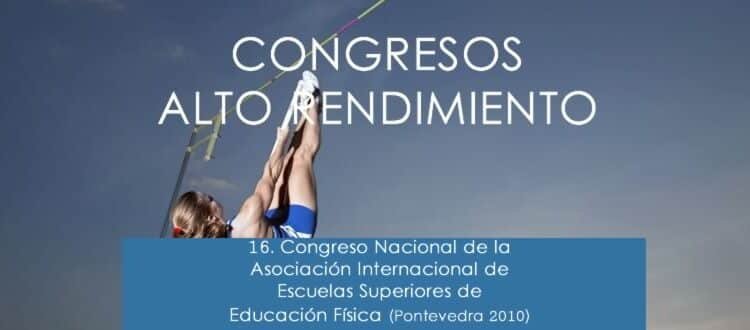Physical education teachers’ job satisfaction in finland
Physical education teachers’ job satisfaction in finland
INTRODUCTION
In Finland, physical education includes two objectives: to educate through exercise and to advocate a sportive lifestyle. This education today faces new challenges: mechanization and an increase in the use of electronic entertainment has led to an increasingly passive lifestyle; more than ever, pupils spend their time playing computer, watching TV, etc. All in all, the physical fitness of Finnish’ children and adolescents’ are polarized: though some student’s still haves good fitness, about one fifth demonstrate very low endurance fitness (Sääkslahti, Huotari, Luukkonen, Huotari, & Luukkonen 2008). In schools there are also other obstacles to fitness: student material has become heterogenous due to e. g. integration of pupils with special needs. Restlesness and disorderly behaviour in students have increased. (Kiviniemi, 2000).
Same challenges has been faced also internationally (Tye & O’Brien 2002; Xioafu & Qiwen 2007). Physical education teachers have to confront these challenges and respond in the best way. However, even in these circumstances physical education teachers should be able to enjoy their jobs and have positive experiences. The goals of this study were to a) evaluate how satisfied Finnish physical education teachers are in present day; and b) explore gender and age differences in the perceptions of teaching PE.
METHODS
The study evaluated job satisfaction of all Finnish physical education teachers, graduated between years 1984-2004.The target group comprised 1050 PE teachers. Total number of respondents were 758 of which 73% (301 female, 255 male) answered that they are still working as a PE teacher. The data were collected between years 2008 and 2009, using a structured questionnaire including open-ended questions regarding job satisfaction. Two-way analysis of variance was used to compare job satisfaction (index of items, scale 1 – extremely dissatisfied to 5 – extremely satisfied) in age and gender groups.
RESULTS
The results indicated that physical education teachers were satisfied with their jobs. Most of physical education teachers (80%) expressed that they were satisfied or extremely satisfied with their jobs. Interaction of age and gender affected job satisfaction (p=.025). Older male teachers (age 45-49 and 50-54) were more satisfied than older female teachers. Table 1.
Table 1 Job satisfaction in age and gender groups (Mean (M) and Standard deviation (st.).
Table 1. Physical education teachers’ job satisfaction in finland
Colleagues, pupils and favourable teaching conditions caused job satisfaction. Student’s low motivation and disorderly behaviour as well as time constrains, poor conditions and equipment caused dissatisfaction in the teachers. Additionally, some teachers were dissatisfied with the school administration. Comparing men with women, men’s job satisfaction was related to supervision (p=.009), opportunities to contribute to their job (p=DISCUSSIONOverall, physical education teachers in Finland are satisfied with their jobs. Satisfaction promoted by colleagues, good working conditions and equipments for teaching, and pupils. Reasons for job dissatisfaction include poor motivation and disorderly behaviour in pupils. It can be seen that job satisfaction arises with the increase in vocational proficiency and age. With more experience, teachers have more ways to handle pupils’ misbehaviour and carry out lessons properly. However, at the end of the career, job satisfaction seems to decrease especially in women, perhaps as a concequence of diminished working ability. Results from job satisfaction of PE teachers seems to be similar in other countries (MacDonald 1999; Moreira, Fox & Sparkes 1995) but the status of PE teachers seems to be lower than in Finland (Whipp, Tan & Yeo 2007; Xioafu & Given 2007) and Finnish PE teachers are not dissatisfied with the salary and promotional opportunities like their colleagues in other countries (Koustelios & Tsigilis 2005; Koustelios, Karabatzaki & Kousteliou 2004; MacDonald 1999; Moreira & al. 1995).
REFERENCES
Kiviniemi, K. (2000). The reality of teaching work as a challenge to teacher training. Teachers’ and teacher trainers’ views on teaching work, changes in teachership and developmental challenges to teacher training.Anticiapatory project to investigate teachers’ initial and continuing training needs (OPEPRO), Report 14. National Board of Education. Helsinki: Hakapaino Oy.
Koustelios, A. D., Karabatzaki, D., & Kousteliou, I. 2004. Autonomy and Job Satisfaction for a Sample of Greek Teachers. Psychological Reports, 95, 883-886.
Koustelios, A. & Tsigilis, N. 2005. The relationship between burnout and job satisfaction among physical education teachers: a multivariate approach. European Physical Education Review, 11: 189-203.
MacDonald, D. 1999. The “Professional” Work of Experienced Physical Education Teachers. Research Quarterly for Exercise and Sport. 70 (1), 41-54.
Moreira, H., Fox, K. R. & Sparkes, A. 1995. Physical Education Teachers and Job Commitment: a Preliminary Analysis. European Physical Education Review, 1, (2), 122-136.
Sääkslahti, A., Huotari, P., Luukkonen, E., Huotari, K., & Luukkonen, U. 2008. Association between selfestimated and measured physical fitness among 6th graders. Liikunta & Tiede, 45 (6), 38-43.
Tye, B. B., & O’Brien, L. 2002. Why Are Experienced Teachers Leaving the Profession? Phi Delta Kappan, 84, 24-33.
Whipp, P., Tan, G. & Yeo, P. T. 2007.






